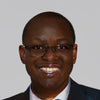Wearable fitness trackers have been widely used to monitor vital signs and physical activity levels. However, a recent study has found that certain fitness wearables, such as smartwatches, smart rings, and smart scales, could interfere with the proper functioning of cardiac implantable electronic devices (CIEDs), such as pacemakers and defibrillators.
This issue is particularly concerning for devices that use bioimpedance sensing technology, which emits a tiny electrical current into the body.
The U.S. Food and Drug Administration (FDA) has not cleared any consumer bioimpedance device for patients with CIEDs due to the potential electrical interference. Therefore, heart patients with CIEDs are advised to avoid commercially available trackers with bioimpedance sensing technology. Some smart scales and rings use this type of sensing.
Electromagnetic waves from certain devices, such as cell phones, headphones, and radios, can also interfere with the proper functioning of CIEDs. Patients with an implantable defibrillator or pacemaker are advised to use their cell phone at least six inches from their implantable device by keeping it at the opposite ear from where their device was implanted.
It is important to note that CIEDs play a critical role in the management of cardiac conditions. Any interference with their functioning can have serious consequences. Therefore, patients with CIEDs must be aware of the potential risks associated with certain wearable fitness devices and take appropriate precautions to prevent any interference.
In conclusion, the use of bioimpedance sensing technology in wearable fitness devices has raised concerns about its potential interference with the proper functioning of CIEDs. Patients with CIEDs are advised to avoid using commercially available trackers that use this technology and to take appropriate precautions with other devices, such as cell phones, to prevent any interference. It is essential to prioritize patient safety and follow the guidance of healthcare professionals to ensure optimal cardiac management.








